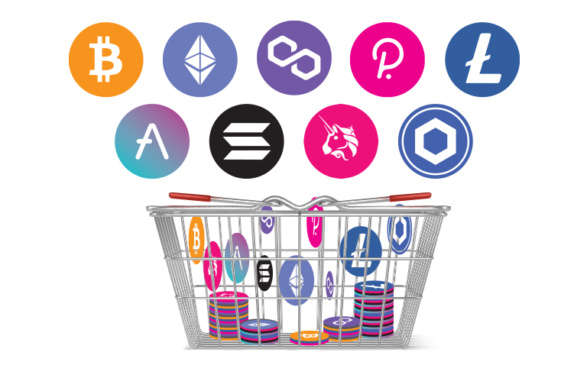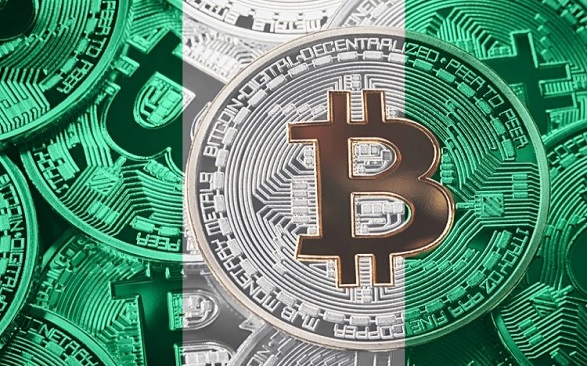“What is the real purpose of a token? Why does an ecosystem need one?”, ask John Mc Keown in his most recent contribution to the thinking and conversation around the crypto ecosystem where thousands of coins and tokens are being churned out regularly by blockchain projects, both locally and globally. Indeed, there appears to be a craze for launching coins and tokens by project owners, regardless of whether integrating a coin or token is critical to the operation of the project. This approach or attitude questions the motivations behind these projects, and in turn builds momentum against new crypto coins and tokens.
And this is exactly the motivation behind John Mc Keown’s piece on Tekedia, ‘The building momentum against new crypto coins and tokens’ on the subject. John Mc Keown is an Irish born serial Senior Manager and Independent Management Consultant on five continents, who is particularly intimate with Nigeria since 1997. He is a promoter of 9ja Cosmos, a metaverse brand rocket in Web 3, bridging the current gap between blockchain technology and the ability of those who generate blockchain assets to integrate them.
A functional entity must exist, not just some coin or token
“If a business has its own stand-alone PoW blockchain, then we can see it can be difficult to operate in this case without a coin or token”, John Mc Keown points out. “Something needs to exist as a functional entity to incentivize miners to do what they do.”
Indeed. A project founder or developer builds a blockchain or crypto project without its own stand-alone blockchain. He or she decides to build on Ethereum, a layer one smart-contract platform with its native coin, Ether–which is by the way currently the second biggest coin in the crypto market by market cap. But for some reason, the project founder or developer decides that the blockchain or crypto project needs its own native token, not Ether. Except having that separate token is really indispensable, this is a potential pitfall for projects. And a red flag for potential investors, it must be said.
But first, a distinction worth noting
Though ‘coin’ and ‘token’ are commonly used interchangeably, they do not mean the same thing. A coin refers to any cryptocurrency or cryptoasset that has a standalone, independent blockchain. An example is bitcoin (‘BTC’ with ‘b’ in lower case), the native cryptocurrency or cryptoasset that powers Bitcoin, a blockchain and public network that is currently the most popular and biggest cryptocurrency that offers a peer-to-peer electronic cash system. Also, Ether (ETH) is the native cryptocurrency or cryptoasset of Ethereum, a blockchain, open-source protocol, and public network that enables developers to build decentralized applications (dApps).
A token, on the other hand, refers to any cryptocurrency or cryptoasset that does not have its own standalone, independent blockchain. Tokens are derivatives of primary blockchains. Currently, many tokens exist on smart-contract platforms such as Ethereum. Ethereum’s ERC-20 token standard, is a popular protocol developers use to create tokens on the Ethereum blockchain. These tokens are exchangeable with others. Projects without their own standalone blockchains may decide to issue their own native tokens for various reasons. These include incentivizing their communities, raising funds for their projects, and enabling special access to their project’s ecosystem. An example of a token is Polygon (MATIC), a smart contract protocol built on Ethereum blockchain. It boasts “the most proven way to build and scale your projects on Ethereum”. The right tokenomics is key to the success of any token.
The point is this: Introducing a token is not a bad thing, but introducing one when it can be dispensed with, giving the specific architecture and model of your blockchain or crypto project. The flagrant abuse of tokens in the blockchain ecosystem is what has led to shitcoins. And by ‘shitcoins’, I don’t mean altcoins or cryptocurrencies that were developed after bitcoins became popular, as some people pejoratively describe post-bitcoin cryptocurrencies. By ‘shitcoins’, I mean cryptocurrencies or cryptoassets that offer no value or have no meaningful purpose. Of course, what is valuable or meaningful is subjective, one would argue. But you get the point. Don’t shit around with coins and tokens.
Coins or tokens as menacing distractions from focusing on the real thing: Ecosystem products
John Mc Keown believes that “it’s hard to see how a token is an indispensable part of an architecture that isn’t much more than a ‘protocol’ with smart contracts.” Infact, “[i]t’s just one more distraction from focusing on development and improvement of ecosystem products.”
But do project founders and developers see it this way? Many project founders and developers—for various reasons put forward in their whitepapers—continue to introduce coins or tokens. Indeed, most insist that this is the way to go. Consciously or unconsciously; gradually and surely, project focus, including the roadmap, shifts towards the project coin or token, away from the product or service of the project, if any. In other words, the coin or token becomes the project.
“When a start-up or early business owner insists on having a coin/token when it doesn’t seem operationally critical, then it goes as to what the motivation and agenda is”, says John Mc Keown.
And the crypto space is one place you will not find a shortage of motivations and agenda. Motivations to build a new decentralized social media network on a Web3 infrastructure, build a new republic on the metaverse, solve global warming problems by introducing a climate change-focused decentralized autonomous application (DAO), or end poverty in the world by introducing a coin or token that guarantees universal basic income for billions of people. On the other hand, the agenda may be pure, but sometimes get corrupted along the way—sometimes by the distraction of becoming a billionaire overnight enabled by coins and tokens from “thin air” or by the temptation of saving the world but without first saving oneself.
“There is absolutely no reason why the business can’t operate on the coin/token of the parent ecosystem”, maintains John Mc Keown. He believes that “the general acceptance of coins and tokens, and growing aversion to them is a bit subjective”. While he thinks well established cryptocurrencies would “probably survive”, a small handful would thrive or in his words “[do] a lot better than surviving”.
For Nigerian entrepreneurs, John Mc Keown fears that they will face even more difficulty surviving as Nigeria’s poor rating by the ‘Three Horsemen of the Apocalypse’—Moodys’, S&P, and Fitch—has compounded the situation. To buttress his point, he referred to Zugacoin and AFEN, blockchain projects from Nigerian project founders.
“Zuga Coin is currently trading at $0.0153696 off a high of $187.70 in 2021, while AFEN is trading at $0.0002352 off a high of $0.08197, also in 2021 (source – Coingeko). A new token born in Nigeria is going to have things a lot harder in 2023.”
For emphasis, John Mc Keown’s reference to Zugacoin and AFEN should be understood to be purely for statistical purposes. Users are advised to do their own research about these projects.
Don’t weigh down your blockchain or crypto project with a token that is doomed to perform like poop.
As a project founder, when you create coins or tokens that are not indispensable to the efficient operation of your blockchain or crypto project, you are effectively creating pitfalls for yourself, and sadly, for your community, including existing and potential investors. Red flags. Reputational damage. Chaos. Rather than risk these—except your motivation and agenda are not noble—make every effort to avoid having a coin or token, if your ecosystem product or service can operate without it.
In John Mc Keown’s’ final words: “My take is that in the current climate, unless the mechanics of a blockchain product ecosystem makes it impossible to operate without a coin or token, at present, every effort should be made to avoid having one.”
“There is no point in an otherwise great blockchain initiative or start-up being weighed down by a token that is doomed to perform like poop.”
With Nigeria having recently approved a national blockchain policy, project founders must resist the distraction of mere coins and tokens. The blockchain industry is not and cannot be an industry supposedly created out of thin air. Short cuts will only cut you short. Solid projects must be developed. Project founders and developers must focus on the real solutions that their ecosystem products and services offer. This is the only way a sustainable blockchain ecosystem can be achieved, creating lasting opportunities for all.
by Senator Ihenyen, Founding Editor, Crypto Asset Buyer (CAB) and Lead Partner at Infusion Lawyers where he heads the Blockchain & Virtual Asset Practice. He is the immediate former President of SiBAN, former General Secretary of Blockchain Industry Coordinating Committee of Nigeria (BICCoN), and former General Secretary of Fintech Alliance Coordinating Team (FACT).
Discover more from Crypto Asset Buyer
Subscribe to get the latest posts sent to your email.





